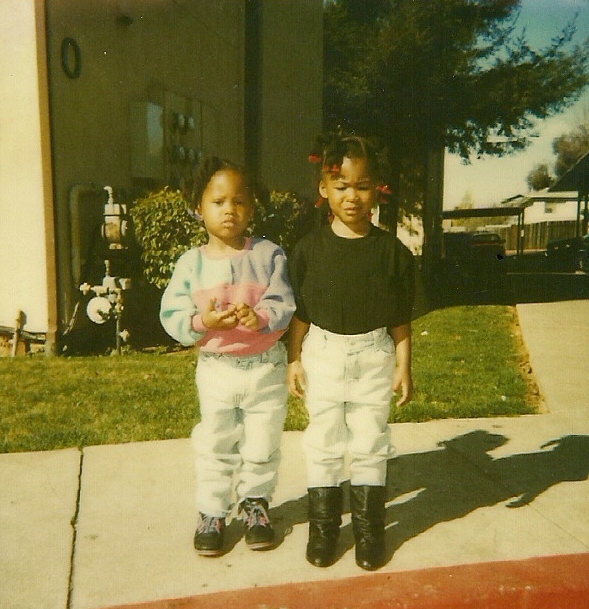Psychology Has a Racism and Discrimination Problem—And I’m Here to Fix It (At Least, a Little)
I didn’t go into psychology because I thought it was perfect. In fact, I knew from the start that the field was riddled with racism, discrimination, and a long history of weaponizing “science” against the very people who needed help the most. But instead of turning away from it, I decided to be part of the change.
I’ve spent my career correcting misdiagnoses rooted in cultural and socioeconomic bias. I’ve seen people labeled with disorders they don’t have because their lived experiences weren’t considered—because the person assessing them didn’t understand what it means to exist as a marginalized person in an oppressive society. And I’m not here for that.
So, let’s talk about psychology’s ugly past (and present). But don’t worry—I won’t just leave you in the pit of despair. There’s hope, and I’ll get to that too.
Psychology’s Messy, Racist, and Discriminatory Past
Psychology has done some wild things in the name of “science.” Let’s take a little tour, shall we?
Drapetomania: “The Disease of Wanting to Be Free”
Back in 1851, a guy named Samuel Cartwright came up with Drapetomania—a supposed mental illness that caused enslaved Black people to want to escape captivity. His “treatment” plan? Beatings. This wasn’t science. This was white supremacy with a fancy Latin-sounding name.Schizophrenia: The Convenient Label for Civil Rights Activists
The DSM-II (1968) decided to redefine schizophrenia to include “aggression” and “hostility,” conveniently around the time that Black activists were demanding civil rights. Suddenly, being justifiably angry at oppression became a mental illness, leading to Black men being disproportionately misdiagnosed, medicated, and institutionalized.The DSM and Homophobia
Until 1973, the Diagnostic and Statistical Manual of Mental Disorders (DSM) classified homosexuality as a mental illness. That meant being queer wasn’t just socially stigmatized—it was medically condemned. Therapists actively tried to “cure” LGBTQ+ individuals through conversion therapy, which we now know is psychological torture.Psychology’s Role in Eugenics and Forced Sterilization
Psychological research was a key player in eugenics movements, which led to the forced sterilization of thousands of Black, Indigenous, disabled, and poor individuals. The justification? That they were “mentally unfit” to reproduce. This wasn’t just an idea—this was actual policy in the U.S. well into the 1970s.Naming Disorders After a Nazi Collaborator
Ever heard of Asperger’s Syndrome? It was named after Hans Asperger, who had ties to the Nazi regime and participated in the euthanasia of disabled children. Yet, for decades, we continued to honor him in our diagnostic manuals. Only recently was his name removed.Psychology’s Love Affair with White Men
For most of psychology’s history, research studies included only one type of participant: white men. This means that almost everything we “knew” about mental health, cognition, and behavior was based on a very specific demographic. Women? People of color? Entire cultures with different worldviews? Ignored. And yet, those same findings were applied to everyone. No wonder so many people have been misdiagnosed or misunderstood.It Took Until 2021 for the APA to Say “Sorry”
The American Psychological Association (APA) finally admitted in 2021 that psychology had been complicit in systemic racism. They issued a formal apology to people of color for promoting racial disparities and contributing to their oppression. Great, thanks for that—only took over a century.There are many other examples, but I will move on otherwise we will be here all day!
So… Why Am I in This Field?
Good question. Given all of this, you might wonder why I (or anyone who sees these problems) would still want to be a therapist. Here’s why:
Because psychology should be about healing. Because marginalized communities deserve therapists who actually understand the impact of racism, oppression, and generational trauma. Because if we leave this field in the hands of those who refuse to acknowledge these issues, nothing will change.
I’ve personally worked to correct misdiagnoses caused by racial and cultural bias. I’ve seen people mislabeled because their therapist didn’t understand their background—because no one considered how trauma, poverty, or systemic oppression shape mental health. I make it a point to look deeper, to consider the whole person, not just their symptoms on a checklist.
Psychology as a Tool for Change
Despite its flaws, psychology has also been used to challenge injustice. When wielded by the right people, it can be powerful:
The Doll Test That Helped End Segregation
In the 1940s, psychologists Kenneth and Mamie Clark conducted the Doll Test, where Black children were given Black and white dolls and asked which ones were “good” or “bad.” Heartbreakingly, most chose the white dolls as “good,” reflecting the damage of segregation on their self-esteem. This research played a crucial role in Brown v. Board of Education, which ended school segregation.Decolonizing Therapy
More therapists today are actively challenging Eurocentric psychology and integrating cultural competence, community-based healing, and intersectional analysis into therapy. We’re moving beyond the outdated, one-size-fits-all approach.Advocating for Diagnostic Justice
There’s a growing movement to re-evaluate how we diagnose mental health conditions, taking into account systemic oppression, racism, and cultural differences. More clinicians (myself included) are pushing back against misdiagnoses that fail to consider the full picture.
Where Do We Go from Here?
Psychology has a long way to go, but I refuse to throw the whole thing away. Instead, I’m here to challenge it, to correct its mistakes, and to make sure that marginalized communities get the care they actually need.
If we abandon the field entirely, it stays in the hands of people who don’t see these issues—or worse, don’t care. If we take up space, challenge the system, and demand better, we create change from the inside.
That’s why I do this work. And that’s why, despite psychology’s very messy history, I still believe in its potential to help—when done right.







Comments
Post a Comment